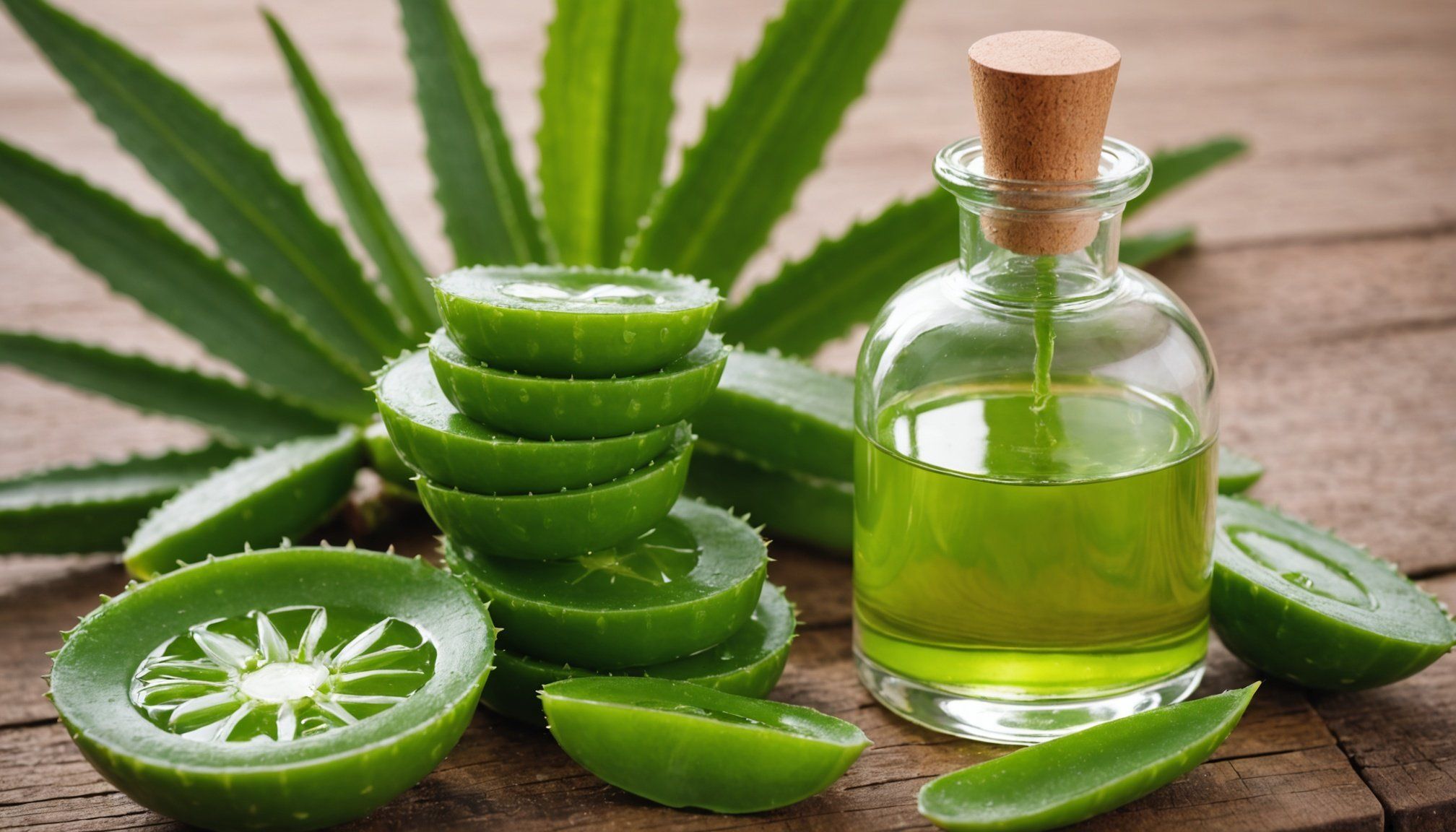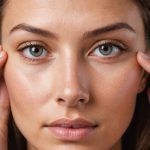Benefits of Aloe Vera for Beauty
Aloe vera is renowned for its multifaceted benefits in skin care and hair care. Its gel, derived from the plant’s leaves, is a powerhouse of nutrients with over 75 active compounds, including vitamins, minerals, and anti-inflammatory substances. This makes it remarkably effective in promoting skin and hair health.
Skin Care
Aloe vera’s hydrating properties make it an excellent skin moisturizer. Studies confirm its ability to improve skin hydration, thus maintaining a healthy, youthful glow. For those struggling with acne, aloe vera is a natural remedy, thanks to its antimicrobial and anti-inflammatory qualities, which help reduce breakouts without causing irritation.
Also to see : Revitalize Your Evening Skincare Ritual for a Glowing Complexion by Morning in the UK
Hair Care
When it comes to hair care, aloe vera is a versatile solution. It aids in reducing dandruff, moisturizing the scalp, and promoting hair growth. The plant’s enzymes help gently clean the scalp and remove dead skin cells, potentially paving the way for nutrient absorption.
Anti-aging and Soothing Properties
Additionally, aloe vera offers anti-aging benefits. It contains antioxidants, such as vitamins C and E, which protect the skin from oxidative stress. Also, its soothing properties can alleviate irritation from sun exposure or shaving, making it an essential component of any beauty regimen.
In parallel : Elevate your locks: the definitive handbook for combining thermal protectants and styling sprays
Incorporating Aloe Vera into Skincare
Aloe vera is renowned for its soothing and hydrating properties, making it a versatile addition to any skincare routine. Its benefits span from simple moisturizing to more targeted treatments like acne care.
Using Aloe Vera as a Moisturizer
To harness the moisturizing power of aloe vera, apply a thin layer of aloe vera gel to clean skin. For enhanced hydration, consider combining it with a few drops of natural oils such as jojoba or almond oil. Users often testify to the gel’s non-greasy feel and the natural glow it imparts, noting significant improvements in skin texture after continuous use.
Aloe Vera for Acne Treatment
Aloe vera also acts as an effective acne treatment. Consider making a homemade face mask by blending aloe vera with honey or turmeric. Apply this mixture to affected areas daily or every other day. Users have reported clearer skin and reduced redness, but be mindful of any skin irritations—discontinue use if you experience adverse effects.
Anti-aging Properties of Aloe Vera
Studies show aloe vera supports skin elasticity, contributing to a youthful appearance. For an anti-aging boost, create a serum by mixing aloe vera gel with vitamin E oil. Real-life experiences reveal noticeable reductions in fine lines, affirming aloe vera’s anti-aging capabilities.
Aloe Vera for Hair Care
Aloe vera is renowned for its nourishing properties, making it a popular ingredient in hair care routines. This natural remedy offers a range of benefits that cater specifically to common hair issues. Aloe vera helps to deeply condition the scalp, reduce dandruff, and promote healthier, shinier hair. It is rich in enzymes that rejuvenate dead skin cells on the scalp, serving as a natural conditioner, which leaves hair smooth and shiny.
Common Hair Problems Addressed
For those struggling with dry and frizzy locks, aloe vera for hair management is a game-changer. Its hydrating qualities moisturise the hair shaft effectively. Additionally, aloe vera soothes scalp irritations and reduces itching caused by dandruff or scalp conditions. With its anti-inflammatory properties, it also assists in reducing scalp redness and irritation.
Supporting Evidence
Research has shown that aloe vera contains vitamins A, C, and E, all of which contribute to cell turnover, promoting healthy cell growth and shiny hair. Studies indicate that the proteolytic enzymes in aloe vera repair damaged cells in the scalp, improving hair follicle health and boosting hair growth over time. By incorporating aloe vera in your hair masks, one can enhance both the moisture and strength of their hair.
DIY Aloe Vera Recipes for Beauty
When it comes to natural skincare and haircare, aloe vera stands out as a versatile hero. With its soothing properties, it provides nourishment to a range of DIY beauty recipes.
Homemade Aloe Vera Face Masks
Creating DIY aloe vera face masks tailored to your skin type is rewarding and simple. For dry skin, mix aloe vera gel with honey and a splash of almond oil. For oily skin, combine aloe vera with a teaspoon of lemon juice. Apply these mixtures evenly, leave on for 10 to 15 minutes, and rinse with warm water. Incorporate a drop of lavender essential oil for relaxation or tea tree oil for antibacterial benefits.
Aloe Vera Hair Treatments
Aloe vera is equally beneficial for hair care, offering recipes that promote scalp health and shine. For an effective hair mask, blend aloe vera with coconut oil and apply from roots to tips. Leave it for at least 30 minutes before shampooing. For those battling dandruff, massage pure aloe vera gel directly into the scalp, let it sit for 20 minutes, and rinse thoroughly. This not only reduces flakes but also calms any irritation. Integrating aloe vera regularly can significantly enhance overall hair vitality, making it an essential staple in many hair care routines.
Product Recommendations
Selecting the best aloe vera products can be transformative for both skincare and hair care routines. Aloe vera gels, known for their soothing and hydrating properties, are popular choices. For skincare, these gels can help alleviate sunburns and provide moisture to dry skin. Opt for aloe vera gels that are pure and organic for the best results.
When it comes to aloe vera-infused skincare products, consider those that also incorporate complementary ingredients like chamomile or green tea. These synergistic ingredients enhance the calming and antioxidant benefits, making the products more effective for sensitive skin.
For hair care enthusiasts, aloe vera-infused shampoos and conditioners can promote a healthy scalp and reduce dandruff. Look for formulas that balance aloe vera with other natural oils to ensure deep moisturization and shine.
Choosing quality aloe vera products involves checking the ingredient list. Products should list aloe vera as a primary ingredient, indicated by its placement early in the list. Additionally, it’s essential to verify the purity—products with fewer additives offer better efficacy. Always seek out reputable brands with positive customer reviews to ensure you’re getting products that deliver on their promises.
Safety and Side Effects of Aloe Vera
Aloe vera, while widely recognized for its healing properties, comes with certain contraindications and side effects that users should be aware of. Common side effects include skin irritation and allergic reactions, primarily affecting individuals with sensitive skin. Therefore, individuals prone to allergies should proceed with caution.
Before applying aloe vera extensively, it’s essential to conduct a patch test. This involves applying a small amount on a part of the body, such as the wrist, and waiting 24 hours to monitor any adverse reaction. It’s a prudent step to prevent unexpected allergic responses, ensuring proper usage.
Certain groups of people should avoid aloe vera entirely. Pregnant and breastfeeding women, as well as those with abdominal issues like Crohn’s disease or irritable bowel syndrome, should exercise caution as aloe vera might exacerbate symptoms.
Moreover, individuals on medication or with underlying health conditions should consult a healthcare professional before incorporating aloe vera into their routine. This helps mitigate potential side effects and ensures it’s safe within their specific health context. These precautionary measures provide an extra layer of safety for all users exploring the benefits of aloe vera.











